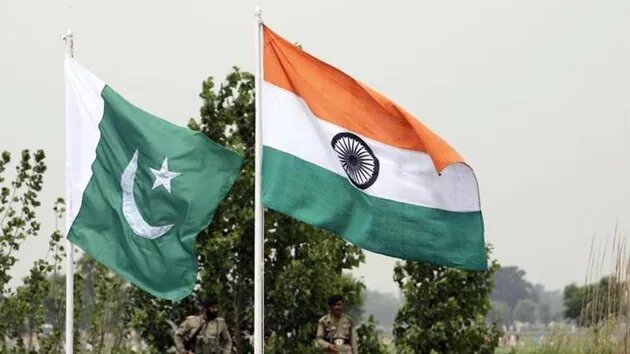India and Pakistan exchanged lists of nuclear installations that can’t be attacked in case of war on Sunday. This has been a tradition since 1992, even though relations between the two countries are at an all-time low.
The two sides also traded lists of prisoners being held in each other’s jails, and India asked for the early release and return of civilian prisoners, missing military personnel, fishermen, and their boats that were being held by Pakistan.
According to the Agreement on the Prohibition of Attack against Nuclear Installations and Facilities, the lists of nuclear installations and facilities were shared at the same time through diplomatic channels in both New Delhi and Islamabad. Both sides don’t talk about what these facilities are.
The agreement, which was signed on December 31, 1988, went into effect on January 27, 1991. It says that “India and Pakistan inform each other on January 1 of every calendar year of the nuclear installations and facilities to be covered by the Agreement,” according to the external affairs ministry.
This was the 32nd time in a row that these lists were sent back and forth between the two countries. The first time was on January 1, 1992.
Under the terms of the 2008 Agreement on Consular Access, the two countries also exchange lists of prisoners in each other’s custody twice a year, on January 1 and July 1, through diplomatic channels in New Delhi and Islamabad.
The Ministry of External Affairs said that India is holding 339 Pakistani civilian prisoners and 95 Pakistani fishermen right now. Pakistan gave India a list of 51 civilian prisoners and 654 fishermen “who are or are thought to be Indians.”
In a statement, the ministry said, “The government has asked for the early release and return to India of civilian prisoners, missing Indian military personnel, and fishermen with their boats who are being held by Pakistan.”
“In this situation, Pakistan was asked to speed up the release and return of 631 Indian fishermen and two Indian civilian prisoners who had finished their sentences and whose nationality had been confirmed and sent to Pakistan.”
Also, Pakistan was asked to give consular access right away to 30 Indian fishermen and 22 Indian civilian prisoners who are being held in Pakistan.
“India is still committed to putting all humanitarian issues, like prisoners and fishermen in each other’s country, at the top of the list. In this context, India has also asked Pakistan to move quickly to do what it needs to do to confirm the nationality of 71 Pakistani prisoners, including fishermen, whose return is on hold because Pakistan hasn’t confirmed their nationality.
“Pakistan has been asked to make sure that all Indian civilian prisoners and fishermen who are believed to be Indian are safe, secure, and cared for until they are released and sent back to India,” the statement said.
The signing of the agreement in 2008 made it faster to find and free hundreds of prisoners, most of whom were fishermen. But in the last few years, the process has been slowed down by problems between the two sides.
In a statement, Pakistan’s Foreign Office said that Islamabad had asked for the early release and return of 51 Pakistani civilian prisoners and 94 fishermen who had already served their time and had their nationality confirmed. “Also, a request has been made to give consular access to 56 civilian prisoners and missing military personnel from the 1965 and 1971 wars,” it said.
